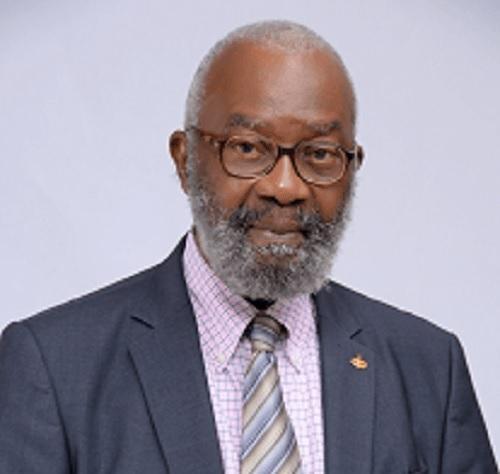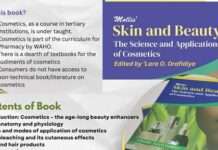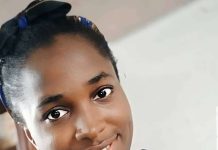Memoir

Editor’s note: Last edition, we started a series of memoirs on the group of Igbo pharmacy students at the then University of Ife, now Obafemi Awolowo University (Ibadan Campus), who had to choose between running for their lives when the Biafra war began or completing their degree programme. Here is the next in the series.
During the 1966/67 session, the Department of Pharmacy had the second set of the final B.Pharm students and some older pharmacists who had obtained their Diploma in Pharmacy in the 1962/63 and the 1963/64 sessions. These diploma-holding pharmacists were granted concession to sit for the B.Pharm exams with the 1966/67 set. I was in that set, and so also were Eugene Okonkwo, Bona Obiorah, Pius Ogwueleka, Dennis Okolo, and Moses Azuike.
According to the school calendar, the final exams were to start on 2 June, 1967. However, in the nation’s political arena, simmering anger, tension and apprehension between the government of Eastern Region, headed by Col. Chukwuemeka Odumegwu-Ojukwu, on one hand, and the Federal Government, headed by General Yakubu Gowon, on the other hand, had drastically worsened. The Aburi Accord, which was the last attempt to salvage the nation, had failed.
Following the declaration of the state of emergency and restructuring of the nation into 12 states by General Gowon on 27 May 1967, Col. Odumegwu-Ojukwu declared the secession of Biafra from Nigeria on 30 May 1967.
With the stage set for civil war, Igbos from around the country were advised to return home, as it was obvious that they would be in serious danger should they still be within Nigeria by the time the war would break out.
The palpable tension around the country was equally felt within the university. On 31 May, the then Vice-Chancellor, Prof. Hezekiah Oluwasanmi, a compassionate man, quickly called a meeting to address the Igbo students. He told us that he could not guarantee our safety, even within the campus. Consequently, he arranged for two buses with police escort to convey us back to the east. It was agreed that we should leave Ibadan the next day, 1 June.
Major dilemma
The arrangement by the VC was not much of a problem for the junior students, but for those of us in final year, especially those of us who were simply taking advantage of the second chance to get the B.Pharm degree, this was a major dilemma. Should we risk our lives or should we let the elusive degree slip from our reach again? Well, eventually, we decided that our lives were more precious. So we agreed to run home.
Fortunately, Moses had a personal car, a red Ford Consul Cosair. So, early on 1 June, Dick Nwoke and I joined him in his car, while we loaded our belongings on the bus which other students used. Some other students joined Eugene and Bona, who, also had personal cars. Together, we all headed back home, while wondering what the future held for the country and if we would ever have a chance to get the B.Pharm degree again.
While on the way, we received information that some final year students on the bus, among whom were Felix Agwaniru and Felix Anazodo, were planning to take the risk of returning to Ibadan for their exams. In fact, we heard that they had been complaining all through the journey that they were going to be the losers if they returned home because, unlike those of us who already had a diploma, they had only their secondary school certificates. This, they reasoned, would put them in a disadvantaged position.
This information caused those of us in the cars to also start rethinking our decision to run. Was running back to Biafra, just when we were about to take our final exams the following day, a wise decision? We reasoned among ourselves that if the other students could take the risk to go back, why couldn’t we do same and get this B.Pharm once and for all?
Finally, we resolved to return to Ibadan. But some of us needed to retrieve our luggage from the bus. So, we headed to Asaba, where the bus would stop finally. However, when the bus arrived and we tried to retrieve our belongings, the bus conductor resisted, because he considered it foolish and dangerous for us to return to Ibadan at that time. In my desperation, I had to meet a soldier on duty, with the nametag “Okwechime”, to explain our predicament and he promptly came to my rescue. He slapped the conductor and ordered him to release our luggage immediately.
The return
The next hurdle that we faced was how we were to return to Ibadan from Asaba. Moses, Eugene and Bona parked their cars in a petrol station at Asaba and we hired a Peugeot 404 vehicle to take us back to Ibadan. In the station wagon were Moses, Eugene, Bona, Dennis Okolo, Pius Ogwueleka, and myself.
Along the way, however, we encountered a curfew in the night. Vehicles could neither go forward nor backward. I was so frightened that I stupidly tried to hide inside the car.
Eventually, we reasoned that we must brave the situation. So, we approached a captain of the Nigerian Army on duty and explained that we were students going for exams starting that morning in Ibadan. We presented our identity cards to convince him. Consequently, he allowed us to move and told us the best route to take. We moved around 4.00 am.
Against all odds, we arrived Ibadan after 9.00 am on 2 June, the very day of our exams. By then, the exams had commenced; so we simply headed straight to the exam hall, without any chance to clean up or getting something to eat. The invigilating lecturers were surprised to see us coming into the hall, looking haggard and famished. After some consultations, we were admitted into the hall and given extra time.
Writing the exams
As we settled down to tackle the exam questions, Dr Ayodele Tella was kind enough to get us bottles of Howdy soft drink. This contributed, in no small way, to refreshing and providing us with some strength to tackle the exam papers.
The first paper was Pharmaceutical Chemistry and the first and compulsory question was on infrared spectroscopy, which I had not study. So, I simply ignored it and cooled down with my soft drink. After the drink, I spent my time on the other four questions, to the best of my ability. When I submitted my answer script, the invigilator called my attention to the fact that I didn’t answer the compulsory question one but I told him I was not interested in it.
As things would turn out, that decision of mine, which was inspired by my uncle’s counsel, ended up giving me an advantage over my peers. When the results came out, my mates who had spent their time trying the first and compulsory question did not do well but just wasted their time on it. I believe that my excellent performance in that Pharmaceutical Chemistry course helped to place me on second-class upper division.
The final touches
After the written exam, came the viva (oral exam). Those of us from the east requested the authorities to give us priority because we had to return to Biafra before the Niger Bridge would be completely closed. The authorities conceded and we were able to have our viva before other students. Prof. Gilbert Onuaguluchi, a renowned pharmacologist, came over from the University College Ibadan (now University of Ibadan) for the exercise.
After fulfilling the requirements for the B.Pharm degree, I and other Igbo students made private arrangements for returning to the east. The results of the B.Pharm exams came out later and were published in the dailies.
Obtaining the B.Pharm degree in the second-class upper division was a fulfilment of my life ambition.












Wow! This is a touching and inspiring story of courage, bravery and determination for success.
Thank you for sharing sir.
The story of the Biafaran war is so scary